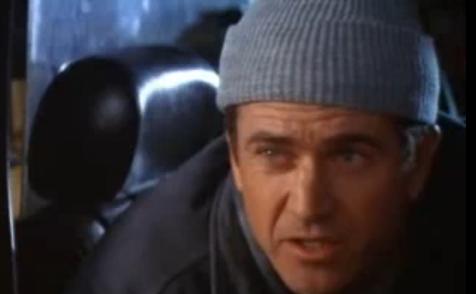When it comes to period films, most times the stories are steeped in non-fiction. We get biopics, "based on a true story" films and a number of other efforts aiming to create as much authenticity as possible. But occasionally, a film opts to tell the story of a theory rather than historical fact. Furthermore, real-life conspiracies often make their way into films.
In his latest film Anonymous, Roland Emmerich tackles the Oxfordian Theory, which states that William Shakespeare didn’t actually write any of his plays. It might sound like a silly idea at first – I know it sounded funny to me – but it’s actually an idea that many subscribe to and not one just cooked up for Emmerich’s film.
In honor of Anonymous hitting theaters this weekend, let’s take a look at five other films that dealt with conspiracies. Invasion of the Body Snatchers (1956)
Invasion of the Body Snatchers (1956)
When films from an era are remembered, it’s usually because they’re fantastic, they speak to a generation, or a combination of the two. Invasion of the Body Snatchers definitely fits that last one. The film sees a doctor trying to make sense of the strange goings-on in town when people are accused of not being themselves.
It was 1956, and it’s not difficult to see that “Body Snatchers” is a metaphor for the fear of Soviets during the Cold War. The film has been remade several times, including recently with The Invasion starring Daniel Craig and Nicole Kidman.
The Manchurian Candidate (1962)
Cashing in more than a little bit on the aforementioned Cold War scare craze, The Manchurian Candidate sees crooner-turned-actor Frank Sinatra unraveling a string of strange occurrences where people have seemingly been brainwashed. Most films made during this time period had a conspiracy aspect to them, whether they were on the surface or hidden in subtext. “Manchurian” obviously fits the former. This one’s definitely worth checking out not only for a historical context but also for a chilly, Oscar-nominated turn from Jessica Fletcher herself, a young Angela Lansbury.
It was recently remade with Denzel Washington and Meryl Streep filling the primary roles. Unfortunately, it lacked the cultural relevance of its predecessor, but it turned on a new audience to an older film they might not have otherwise known about. The Parallax View (1974)
The Parallax View (1974)
Several years after his major breakthrough in Bonnie and Clyde, Warren Beatty led this thriller as a reporter who delves too deep into one of his stories. Without giving too much away, this feature taps into the most paranoid of thought processes involving worldwide conspiracies. The ominous, seemingly sarcastic tagline for the film is “There is no conspiracy. Just twelve people dead.” If that isn’t too disturbing, the film’s opening scene was meant to reflect the 1968 assassination of Robert F. Kennedy. To say the least, it captured a paranoia of an unsure era.
Beatty didn’t pick up much recognition for his role here, but it just goes to show how important his filmography truly is to the world of cinema.
JFK (1991)
Oliver Stone cemented himself as a highly respected director with Platoon. At the same time, though, he’s founded himself as a polarizing presence due to his statements and hugely controversial features such as Natural Born Killers. His film JFK, which sees Kevin Costner playing a New Orleans DA, sits comfortably – or uncomfortably, depending on your view – on that line separating the admired Stone from the ostracized Stone.
Despite the fact that the film was nominated for eight Oscars, including Best Picture, and won two, the film was met with controversy even before it was released. Thanks to an on-set visit from a Washington Post correspondent, it was revealed that at least an early draft of JFK had taken liberties with certain facts, including a bit about President Lyndon B. Johnson wanting to kill Kennedy. It doesn’t help that Stone described his own film as “counter-myth.” Conspiracy Theory (1997)
Conspiracy Theory (1997)
Conspiracy theorists are usually wrong in how they think the world works, but someone has to be right. That’s where Conspiracy Theory comes into the picture. Mel Gibson stars as a conspiracy theorist who believes that two different opposing forces control the world. However, he greatly underestimates just at how close a level he’s being watched.
The underestimation definitely isn’t a surprise here, but what might make one blink twice is that the conspirers in “Theory” are able to do some incredible things, including making earthquakes and programming assassins via mind control. Also starring Julia Roberts, this was one of the top twenty films of 1997.